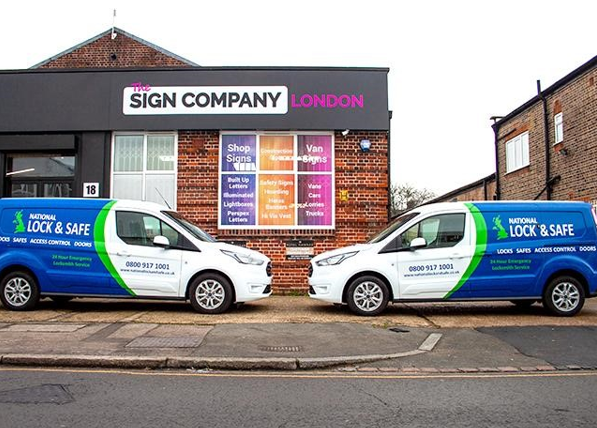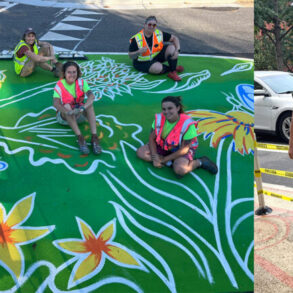
In urban spaces, where every corner brims with stories, outdoor signage emerges as a silent yet influential narrator.
This sign printing art, when mastered, not only captivates the eye but also engages the mind, making it a powerful tool in the arsenal of any business seeking to carve its mark in the public consciousness.
From the elegant dance of colours and fonts to the strategic placement that captures fleeting glances, effective outdoor signage is a symphony of elements, each playing its part to create a lasting impression in the bustling world outside our doors.
Understanding the basics of outdoor signage
What captures your attention when you stroll through a city? Often, it’s the vibrant, creative signs and hoarding signage that lines the streets. The basics of outdoor signage extend beyond mere text on a board; it’s about conveying a story, an ethos. Key considerations include:
- Brand representation: Your sign is a silent ambassador of your brand. It should encapsulate your brand’s ethos, colours, and style.
- Message clarity: The primary goal is to communicate clearly. Whether it’s your brand name, slogan, or a brief description of what you do, the message should be concise and easily comprehensible.
- Visual appeal: This involves a balance of colours, fonts, and images. The design should be eye-catching but not overwhelming.
The role of design and aesthetics (dos and don’ts)
Design and aesthetics in outdoor signage aren’t just about looking good; they’re about creating a connection with the viewer. Here are some dos and don’ts:
- Do use colours that reflect your brand and stand out in the environment.
- Don’t overcomplicate the design. Simplicity often leads to clarity.
- Do choose a font that’s easy to read from a distance.
- Don’t forget about the size and scale of your signage. It needs to be visible and legible from afar.
- Do consider the use of lighting to enhance visibility, especially at night.
Remember, the right design can turn a passerby into a customer.
Location, location, location (things to consider)
Choosing the right location for your outdoor signage can be as crucial as the sign itself. Consider these factors:
- Visibility: Is the sign visible from a distance? Can it be seen from different angles and by people in moving vehicles?
- Traffic: Both pedestrian and vehicle traffic patterns can influence how many people see your sign.
- Surroundings: The context of where your sign is placed matters. It should harmonise with, not clash against, its environment.
- Local regulations: Be aware of local zoning laws and regulations to ensure your signage complies.
By carefully selecting the location, your signage becomes an integral part of the local landscape, not just an afterthought.
Navigating the maze of legalities and regulations is crucial for any outdoor signage. Here’s what to keep in mind:
- Permits: Most areas require a permit for outdoor signage. Ensure you have the necessary approvals before installation.
- Size and placement restrictions: Local laws often dictate the size and placement of outdoor signs. Adhering to these guidelines prevents future legal issues.
- Safety compliance: Your sign should not pose any safety risks to the public. This includes considerations for electrical wiring and structural integrity.
Staying informed and compliant with local laws not only avoids penalties but also demonstrates your commitment to being a responsible community member.
Trends in outdoor signage (what’s new and effective)
In a world where trends constantly evolve, staying updated can give your outdoor hoarding signage an edge. Current trends include:
- Digital integration: Digital signs offer dynamic content and interactivity, a growing trend in outdoor advertising.
- Sustainable materials: Eco-friendly materials are becoming popular, reflecting a brand’s commitment to sustainability.
- Minimalist designs: Simplistic, clear designs are in vogue, focusing on delivering a message without clutter.
- Interactive elements: QR codes or augmented reality features are being used to create an engaging experience for the audience.
Measuring the impact of your signage (how to tell if it’s working)
How do you know if your outdoor hoarding signage is effective? Consider these metrics:
- Foot traffic: An increase in store visits can be a direct indicator of effective signage.
- Sales data: Monitor any changes in sales patterns post the installation of your signage.
- Customer feedback: Engage with your customers to get direct feedback on your signage’s impact.
- Brand awareness: Surveys or social media engagement can help gauge brand recognition.
Regularly assessing these factors helps in fine-tuning your strategy and ensuring your outdoor signage continues to perform optimally.
Conclusion
In essence, mastering outdoor signage is about striking a balance between artistic expression and practical considerations. It’s about making a statement that resonates with the audience while blending seamlessly into the urban landscape. Whether it’s through sophisticated hoarding signage or innovative sign printing methods, the goal remains the same – to create signs that not only inform but also inspire.
Nimesh Kerai serves as the Printing Head at the Sign Company in London. Utilising his technical aptitude and the trait of keeping up with the latest technological advancements, he has been able to deliver top-notch quality prints and signage to customers consistently. This has cemented the Sign Company as one of the most sought-after signage companies in London. He consistently shares his insights with the masses by means of useful and intriguing blogs.
This post was originally published on this site be sure to check out more of their content







